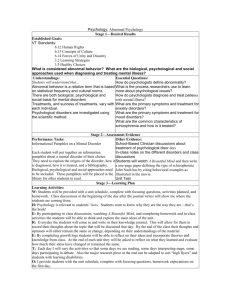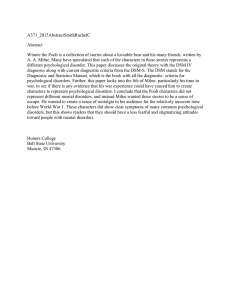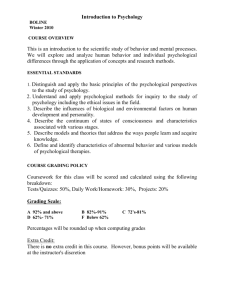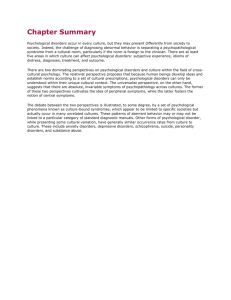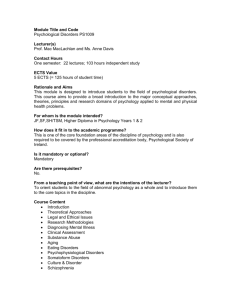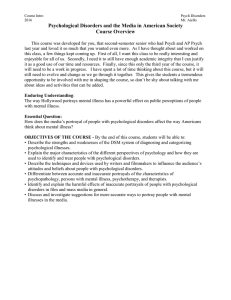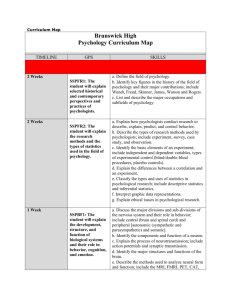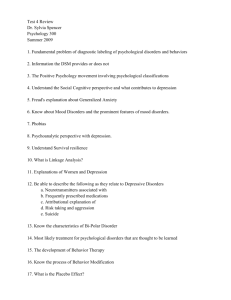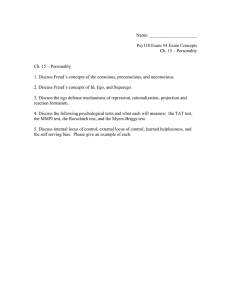PSYC 1101 Introduction to Psychology
advertisement
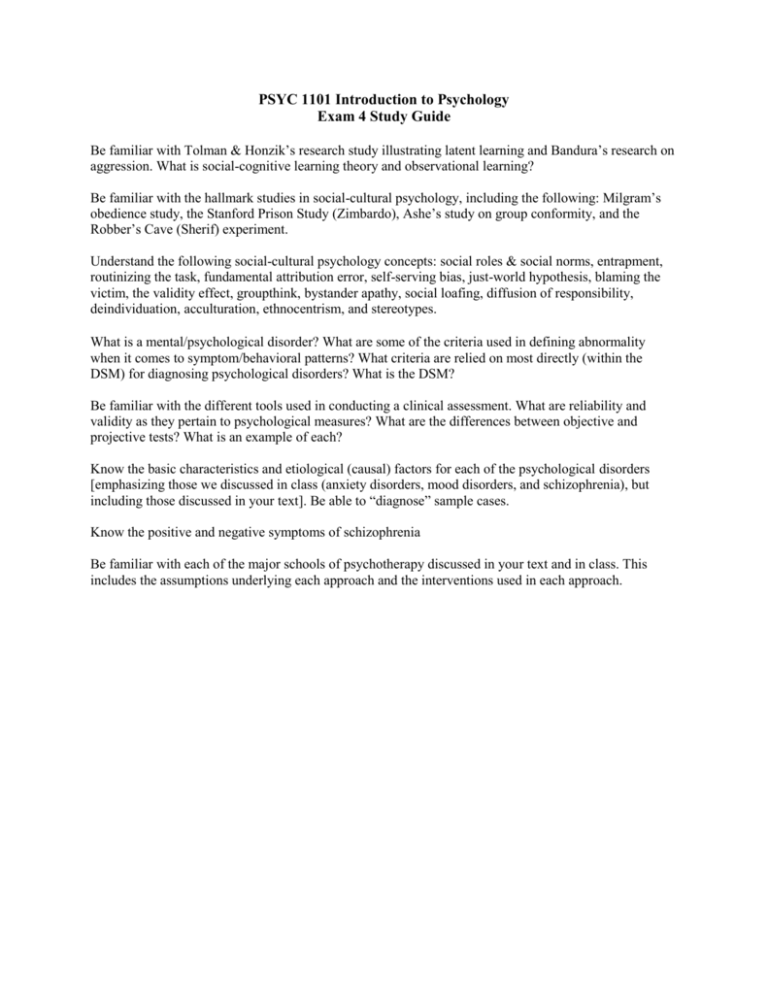
PSYC 1101 Introduction to Psychology Exam 4 Study Guide Be familiar with Tolman & Honzik’s research study illustrating latent learning and Bandura’s research on aggression. What is social-cognitive learning theory and observational learning? Be familiar with the hallmark studies in social-cultural psychology, including the following: Milgram’s obedience study, the Stanford Prison Study (Zimbardo), Ashe’s study on group conformity, and the Robber’s Cave (Sherif) experiment. Understand the following social-cultural psychology concepts: social roles & social norms, entrapment, routinizing the task, fundamental attribution error, self-serving bias, just-world hypothesis, blaming the victim, the validity effect, groupthink, bystander apathy, social loafing, diffusion of responsibility, deindividuation, acculturation, ethnocentrism, and stereotypes. What is a mental/psychological disorder? What are some of the criteria used in defining abnormality when it comes to symptom/behavioral patterns? What criteria are relied on most directly (within the DSM) for diagnosing psychological disorders? What is the DSM? Be familiar with the different tools used in conducting a clinical assessment. What are reliability and validity as they pertain to psychological measures? What are the differences between objective and projective tests? What is an example of each? Know the basic characteristics and etiological (causal) factors for each of the psychological disorders [emphasizing those we discussed in class (anxiety disorders, mood disorders, and schizophrenia), but including those discussed in your text]. Be able to “diagnose” sample cases. Know the positive and negative symptoms of schizophrenia Be familiar with each of the major schools of psychotherapy discussed in your text and in class. This includes the assumptions underlying each approach and the interventions used in each approach.
